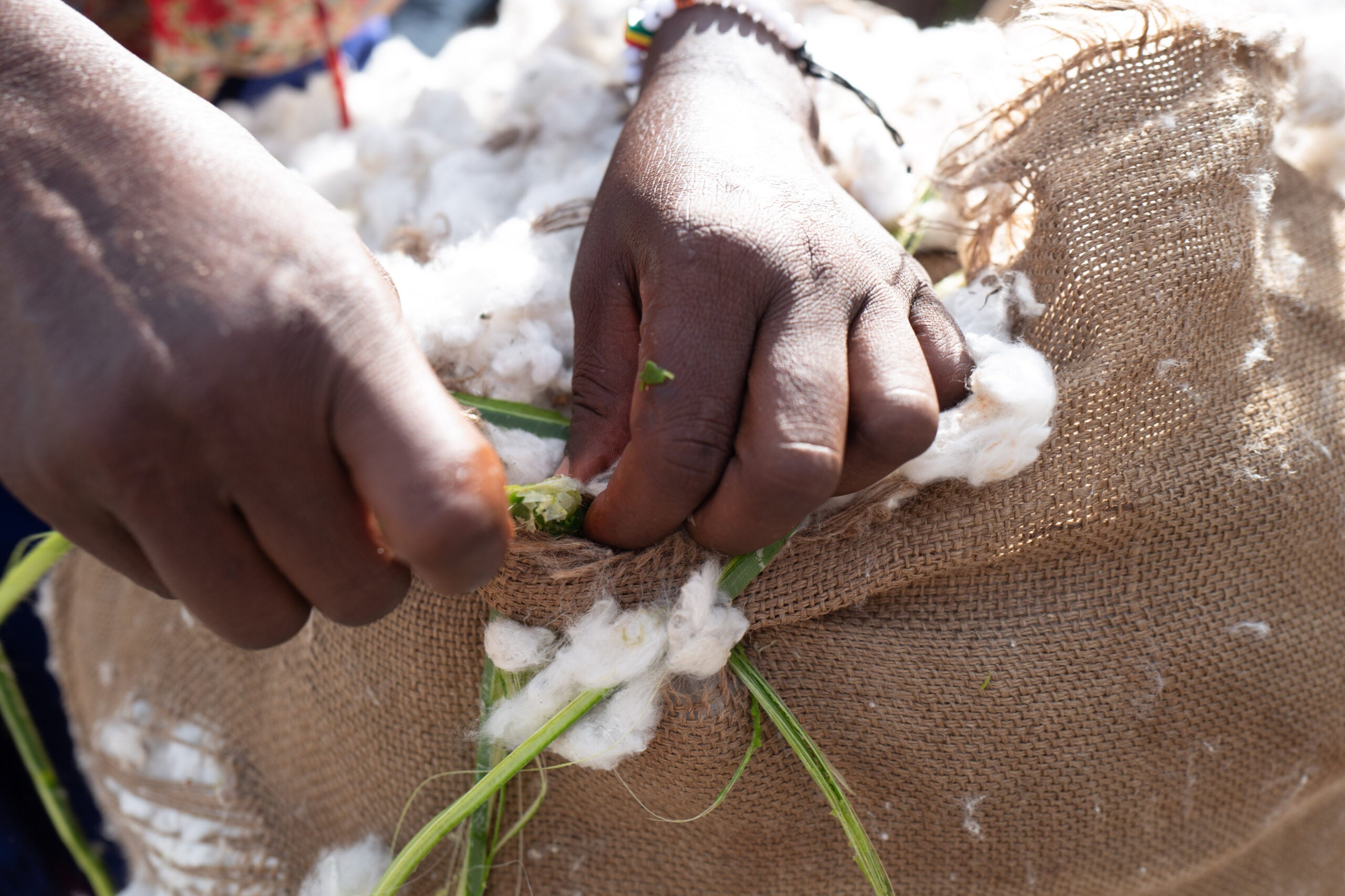
A total of 600 million CmiA textiles were brought to market, more than doubling Cotton made in Africa’s volume from the previous year. In addition, the number of licensed retail and brand partners has risen by around 30% in the past four years and now encompasses some of the world’s biggest retail and fashion chains, including Bestseller, Lidl, LPP, and the Otto Group.
“This year’s record levels of supply and demand for Cotton made in Africa underline how widely accepted sustainable raw materials have become in international value chains,” says Tina Stridde, managing director of the Aid by Trade Foundation, which administers Cotton made in Africa. “Textile companies worldwide, as well as cotton companies in all of Sub-Saharan Africa, have joined our initiative as reliable and strong partners for small-scale farmers. Together, we have been able to ensure that CmiA and CmiA Organic cotton enjoy worldwide demand and are processed in over 50 textile production markets. By harnessing market forces, we are able to prepare small-scale farmers for the growing challenges of climate change and to build up their resilience through innovative and efficient farming methods.”
CmiA works with small-scale farmers in Benin, Burkina Faso, Côte d’Ivoire, Cameroon, Chad and Nigeria as well as in Mozambique, Zambia, and Tanzania. With new partners in Togo and Ghana, the initiative’s network will expand to eleven Sub-Saharan partner countries as of 2022. CmiA has also significantly expanded its textile value chain in recent years. In 2021, the network of registered partners grew to encompass 240 spinning mills throughout the world, making it larger than ever.
Cotton made in Africa follows a licensing model that requires all textile companies to pay licensing fees for CmiA-verified cotton to the initiative, which reinvests the proceeds in cotton-growing regions in Africa. Some of these funds go towards regular certifications that are conducted at the field and ginnery levels by external auditors to monitor compliance with social, economic, and environmental sustainability criteria.
External monitoring ensures that exclusion criteria—like prohibitions on irrigation, child labour, genetically modified seeds, and certain pesticides as defined in international conventions—are met and that progress is made on improvement criteria that target issues including soil fertility and gender equality.
Licensing revenue also supports agricultural and business training for small-scale farmers. The Aid by Trade Foundation is increasingly investing in measures for adapting to climate change and for reducing the impact of cotton growing and ginning on the climate. In one example, a carbon-neutral approach to cultivating CmiA cotton is being promoted in cooperation with atmosfair; in another partnership project, around EUR 2.8m is being invested in sustainable soil management.
CmiA launched the CmiA Carbon Neutral Initiative in December through which it offers sustainable cotton verified according to the CmiA standard while gradually reducing and offsetting greenhouse gas emissions at every stage from cotton production to ginning.



